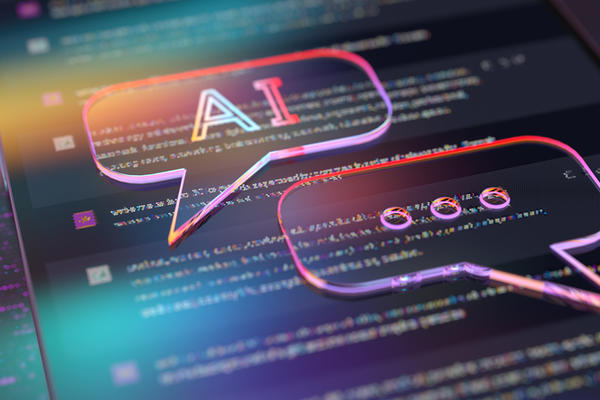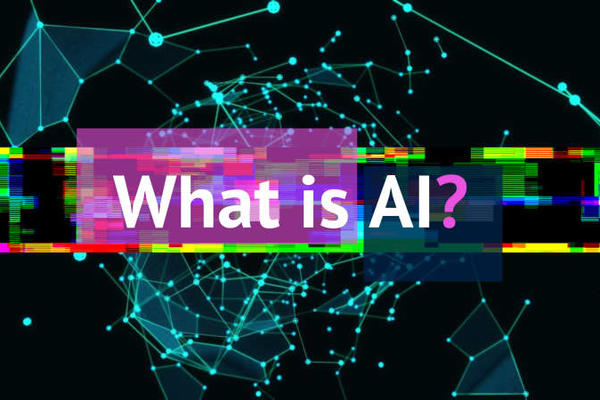CAROLINE GORSKI

CAROLINE GORSKI
The Keble alumna, entrepreneur and authority on AI speaks to Sarah Whitebloom about being in the midst of a ‘great historical shift.’
Published: 30 November 2023
Author: Sarah Whitebloom
Caroline Gorski (Keble, 1992) says she is the least likely person ‘in the world’ to be an authority on Artificial Intelligence. And yet, she is. The Keble graduate is recognised nationally as a tech sector expert, with more than two decades’ experience of cutting-edge computing and technology leadership. Right now, she is buzzing over the national Artificial Intelligence conversation, and maintains the tech that everyone is talking about represents a great historical shift.
For all her self-deprecation, Gorski has done the hard yards since leaving Oxford in 1995 with a degree in History and English. As one of the first to take the double honours’ course, she was able to range widely over subjects that interested her from the Classical period to architecture. But she was fascinated, in particular, by great shifts in History - which is what brought her into computing in general and AI in particular.
Gorski is adamant: we are currently living through one of these great ‘world changing’ shifts – and it is driven by AI.
‘You can see societal shifts through time,’ she says. ‘AI is set to transform society, but there are choices to be made in terms of how much we want AI to do – or not to do.’
And Gorski points out, ‘We need to keep people safe…but I am always surprised when people talk about the threat of being ‘surrounded by robots’.’
‘Where have they been,’ she laughs. ‘We are surrounded by robots. AI is everywhere. We have been living with AI for far longer than people realise – this is not new.’
But Gorski concedes, ‘There is a greater degree of exposure to AI in our everyday lives. It is a part of TV and news and social media and medicine and it affects our work.’
She is, though, excited by the range of opportunities that AI offers, in terms of medical applications and the many other future possibilities, even in terms of creativity – and what that means for people.
‘An algorithm has got a record deal,’ she says with amazement. ‘We going to see more creative works that are machine assisted. Will there be a different market for this new form of art – and another for non-assisted art?
She refers to Warner Bros who ‘signed’ a German algorithm to produce several ‘albums’ of music, pre-pandemic in 2019.
‘It leads to many more questions about creativity and how we create things – whether we are creators or receivers. What does being creative even mean?’
Speaking seriously, she asks, ‘How much of what is happening is our choice? The information technology shifts could affect our democracy. The technology is not ‘right or wrong’ but this is why you need non-tech people in AI.’
There are major issues to be addressed, she argues, ‘At the root of all these questions is, what it means to be a human being…if people are going to be made unemployed by AI, what is that going to mean. Human beings need to be productive – but maybe there will be other measures of productivity than work. People need to live with agency.’
Gorski had been intrigued by the burgeoning tech sector, since she left Oxford, and got into programming and the internet at a time, she says, when you did not have to be a computer expert.
‘Internet business models were changing quickly,’ she recalls of her work for Oxford University Press, putting the English Language Teaching division online. She remained in the sector, either working for herself, as a serial entrepreneur, or for others. Recently, she took up a new role as the chief executive of Capital Enterprise – which has the aim of ‘accelerating the UK tech start-up eco-system’.
Previously, she spent five years working for Rolls Royce, leading its data labs and gaining a reputation as a manager of technological operations.
‘I was lucky I started my career when I did, in the 90s….I’m senior enough that I don’t need a degree in computer science,’ she smiles. ‘Really good AI teams need people who can deepen and broaden their strategy.’
Now, as a senior industry figure, she says she sees a chance to help and is keen to encourage others to launch enterprises and become the entrepreneurs of tomorrow.
Share this article
AI at Oxford
Experts at Oxford are developing fundamental AI tools, using AI to tackle global challenges, and addressing the ethical issues of new technologies.
AI is everywhere and everyone's talking about it. Throughout November and December 2023, join us as we explore what AI means and how it's impacting our society from world-leading experts, and discover the groundbreaking ways artificial intelligence is being applied at Oxford.
Find out more at https://www.ox.ac.uk/ai


















